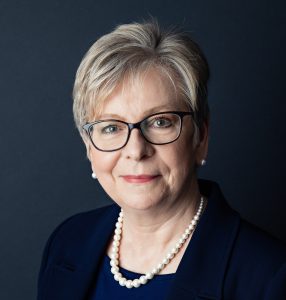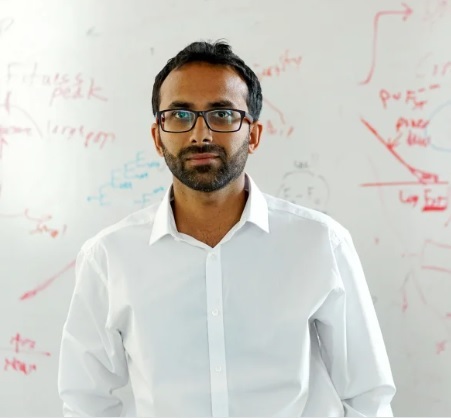Cambridge researchers honoured at Microbiology Society Annual Awards
Congratulations to Professors Sharon Peacock and Ravindra Gupta who received top awards at the Microbiology Society Annual Awards.
The Microbiology Society awards recognise excellence and are made to those making significant contributions in the field of microbiology, based on nominations received from its membership.
Winners are selected for their work to advance understanding of microbiology and champion the contribution made by microbiology and their work in addressing global challenges.
Professor Sharon Peacock – Marjory Stephenson Prize 2023

Professor Sharon Peacock, Professor of Public Health and Microbiology at the University of Cambridge and researcher at NIHR Cambridge BRC, is an academic clinical microbiologist who has built her scientific expertise around pathogen genomics, antimicrobial resistance and a range of tropical diseases.
She was the founding director of COG-UK (the COVID-19 Genomics UK Consortium), formed in April 2020 to provide SARS-CoV-2 genomes to UK public health agencies, the National Health Service and researchers. Generating information on variants proved vital for their detection and tracking, and for studies of viral transmissibility, immune evasion, and disease severity.
Professor Peacock has dedicated more than a decade of her career to the translation of pathogen sequencing into clinical and public health microbiology. She has also used sequencing to examine the extent to which antibiotic-resistant organisms can spread between humans, livestock and the environment. Over her career, Professor Peacock has raised more than £60M in science funding, published more than 500 peer-reviewed papers, and trained a generation of scientists in the UK and elsewhere.
She said of the award: “I am honoured to be the 2023 recipient of the Microbiology Society’s Marjory Stephenson Prize. The prize reflects the work of a large number of dedicated people in the COVID-19 Genomics UK Consortium and beyond, who worked voluntarily and tirelessly across the UK to generate SARS-CoV-2 genomes for public health agencies and researchers worldwide during the pandemic.
“Microbiology has always been a vitally important discipline, but perhaps never more so than in this era of pandemics, antimicrobial resistance and the exploration of our microbiome and how this influences health and disease. I consider the scientific community fortunate in having the benefit of the ongoing contributions made by the Microbiology Society.”
Professor Ravindra Gupta – Translational Microbiology Prize 2023

Professor Ravindra Gupta, Infectious Disease Threats theme lead at NIHR Cambridge BRC, has been a Professor of Clinical Microbiology at the Cambridge Institute for Therapeutic Immunology and Infectious Diseases since 2019.
The Gupta lab based there has worked extensively in HIV drug resistance, both at molecular and population levels, and contributed to the appreciation of the scale of drug resistance globally. The group’s work extends to studies on HIV reservoirs in cells, particularly macrophages.
In 2020 Professor Gupta’s team validated and introduced the SAMBA II point of care test into clinical practice at Addenbrooke’s for rapid diagnosis of COVID-19. During the latter half of 2020 the lab started to study the evolution of the virus within patients in response to antibody-based therapies, as a paradigm of how new variants with multiple mutations have arisen.
The team is also characterising the virology of key spike protein mutations in new variants and their impact on natural and vaccine induced immunity. Professor Gupta is a co-opted member of the New and Emerging Respiratory Virus Threats Advisory Group (NERVTAG). NERVTAG advises the government on the threat posed by new and emerging respiratory viruses.
In 2020 Professor Gupta was named as one of the 100 Most influential people by TIME. In 2021 he was elected to Fellowship of the Academy of Medical Sciences and in November 2022 featured in the Clarivate list of the world’s most highly cited scientists.
He said of the award: “I am thrilled and honoured to receive the Translational Microbiology Prize from the Microbiology Society. For me, it represents a recognition of the work of my team and our collaborators over the years in applying scientific knowledge to combat viruses such as HIV-1 and SARS-CoV-2. This award from an internationally reputed organisation in infectious diseases also provides impetus to continue our endeavours with ever greater passion and commitment.”
A big congratulations also to Dr Tanmay Bharat, Programme Leader at the Medical Research Council (MRC) Laboratory of Molecular Biology (LMB) in Cambridge, who received the Fleming Prize 2023.
This article is adapted from Microbiology.org



